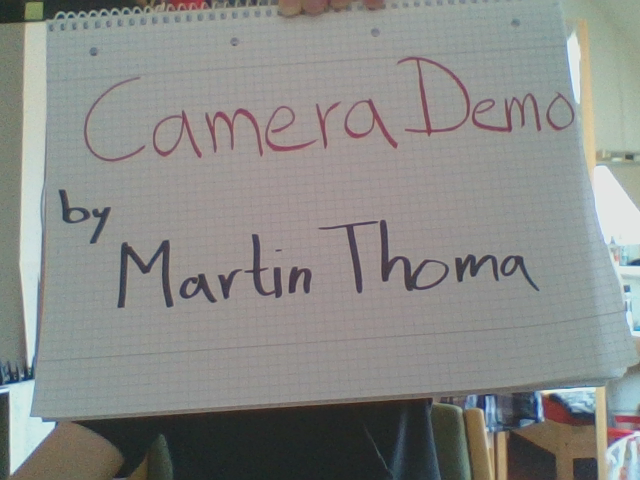I want to get a single image from a camera (e.g. a built-in webcam in a notebook) with Python.
I'm looking for a library that makes this possible in a few lines of code (I'm not looking to write a camera driver or anything like that). The image should be in some standard bitmap format.
Please also
- list requirements (e.g. installed packages, operating system),
- add a link to the documentation

